Premium Only Content
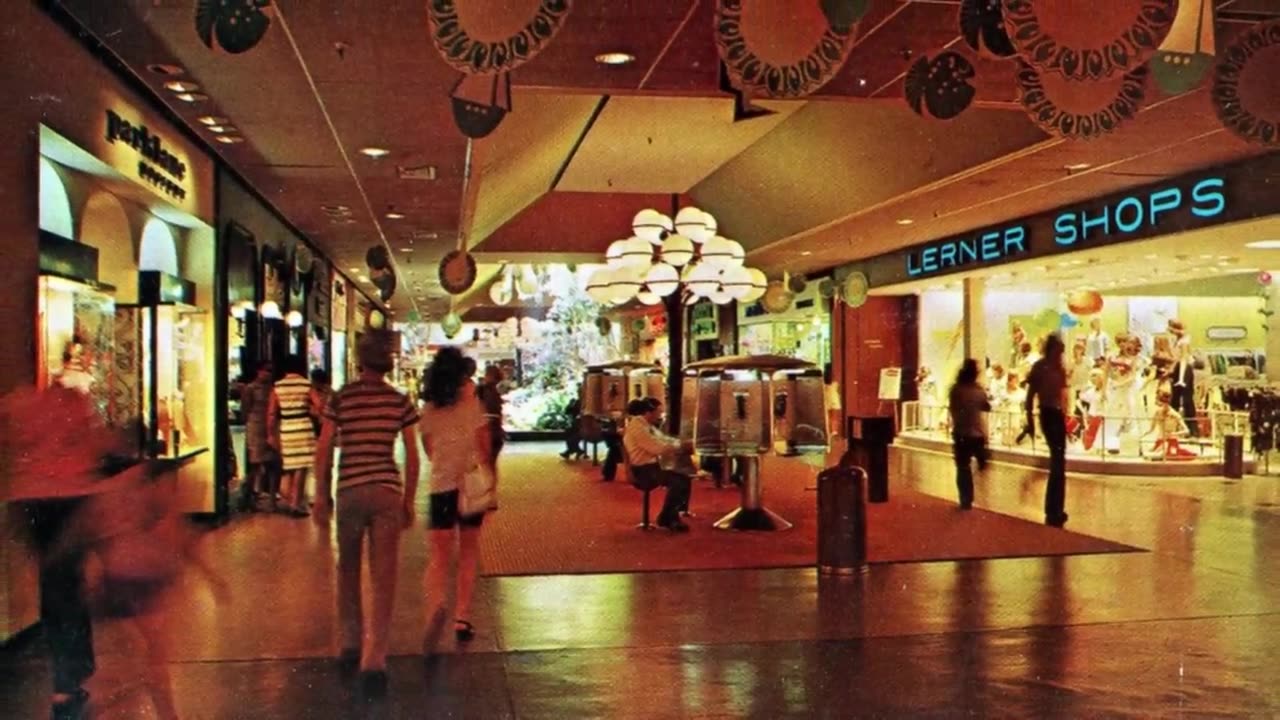
Truckin Touch Of Grey Grateful Dead
Truckin' Album: American Beauty (1970)
Touch of Grey Album: In The Dark (1987)
by Grateful Dead
The '60s was a time for traveling and discovering your place in the world. Sometimes what you found was an empty existence that just keeps repeating itself day to day. Having to deal with everyday life when you were always waiting for some kind of revelation to expand your consciousness was often depressing. In Truckin', The Grateful Dead deal with the banality by continuing their search for epiphany. They just keep truckin' on.
"Truckin'" is the Grateful Dead's coming-of-age story.
In Anthem To Beauty, a documentary covering the making of the American Beauty album, Dead guitarist/vocalist Bob Weir talks about the romance of striking out on the road. He says it was a rite of passage for young people in the 1960s - as it perhaps still is to some degree today, though the internet has robbed much of the mystery of the road. "Truckin'" covers the Dead's navigation through that rite of passage.
"We were starting to become real guys," Weir says, "and really enjoying the hell out of it."
For the Dead, that rite became a way of life. The band never made a ton of money from record sales, and their unique legacy was made by touring.
Also in Anthem, Phil Lesh talks about how the Dead's touring in 1970 preceded the "rock and roll bubble," when groups were isolated from fans and regular folks. The Dead were flying coach, riding busses, and staying in modest hotels. There were no handlers to protect them from the public or from the authorities.
That manner of living was exciting in its way, but it could also get downright boring after a while, with long hours spent in hotel rooms and waiting for transportation to the next show. This is why the song has a line going, "Get tired of travelin' and you want to settle down."
Even though the song is autobiographical for the Dead, it also means a lot to the lives of many Deadheads and children of the '60s in general. Part of what defined that generation was the thirst for freedom and adventure, which led to lives on the road (and some people staying there too long).
Grateful Dead members Jerry Garcia, Phil Lesh and Bob Weir are the credited writers on this track along with their lyricist, Robert Hunter. During recording, Hunter fed Weir one line at a time.
The line, "Busted, down on Bourbon Street" refers to an incident on January 31, 1970 when members of the band were arrested in a drug bust that netted 19 people in New Orleans. The group was in town to play two shows at a club called the Warehouse, and the raid happened the morning after their first show at the French Quarter hotel where they were staying. Lesh, Weir and drummer Bill Kreutzmann were all arrested along with crew members and fans of the band who had joined them at the hotel.
The story made the front page of the New Orleans Times-Picayune the next day, and drew national attention, with Rolling Stone running an article on the incident. Owsley Stanley, a Dead associate known for his pioneering work with LSD, was also arrested and labeled the "King of Acid" in the Times-Picayune piece. According to the Rolling Stone article, the band paid for bail and legal fees for all 19 arrested.
In its original conception, the song was supposed to evolve as the band progressed. Robert Hunter envisioned them adding verses for significant events as time went on, but then came to realize that it simply wasn't going to work that way. The song ended up staying the same, though the band would improvise jams during live performances.
In Behind the Hits by Bob Shannon and John Javna, Hunter said he started writing the song in the band's home base of San Francisco, wrote some more in Houston, and then wrapped it up in Florida, which would bring the song all the way from West Coast to East.
In the same book, Hunter mentions that the line "sometimes the light's all shining on me" came from the rest of the Dead, not from himself, and that the band tinkered with his melody a bit so the final product sounded less like Chuck Berry than he had originally written.
Over at Dead.net, David Dodd reports a rumor that the lyric "arrows of neon and flashing marquees out on Main Street" originally started with "garlands of neon," and that Hunter had chosen the word "garlands" as a prank to tongue-tie Weir. Weir eventually gave it up and went with the more singable "arrows of neon."
Despite the emblematic "what a long, strange trip it's been" line, the band had only been together for five years when "Truckin'" was recorded. The band members were also in their 20s or early 30s, hardly the grizzled old veterans that the line implicates.
In Skeleton Key: A Dictionary for Deadheads, Hunter says that the "long strange trip" referred also to his decade of performing that preceded his time with the Dead.
The line has become almost a cliché today, but it originated in "Truckin'," and it meant a lot not only to the band but to the '60s generation. The hippie counterculture flung its participants through five years of transformation and madness that were very rare. With tens of thousands of young people slinging on backpacks and hitting the road, they lived a lot of life in a short span of time, and came out feeling the road had been longer than mere chronology might suggest.
The Dead first played "Truckin'" as the opening song for their August 18, 1970 performance at the Fillmore West in San Francisco. They also debuted American Beauty songs "Operator," "Brokedown Palace," and "Ripple."
The final performance was at Maryland Heights Missouri's Riverport Amphitheatre on July 6, 1995. Dead frontman Jerry Garcia died a little over a month later.
The Dead released the song as a single, backed with "Ripple." It reached #64, making it the highest-charting single on the album. "Sugar Magnolia" hit #91.
Dallas - got a soft machine
Beat writer William S. Burroughs wrote a novel titled The Soft Machine in 1961. It's the first part of his Nova Trilogy and is wild and bizarre even by the standards of Burroughs, who was one of American literature's wildest, most bizarre writers. How this book (too winding and strange to even attempt to summarize coherently here) would be used to represent Dallas is truly a mystery, but the connection seems pretty certain. Burroughs and the Beats were the precursors to the hippies, and Hunter was a well-read fellow.
Truckin', got my chips cashed in
Keep truckin', like the doo-dah man
A person cashes chips in at casinos and similar gambling venues. You get money for your chips. People cash in their winnings.
In the book Skeleton Key, Hunter states that the "doo-dah man" refers to "Camptown Races" by Stephen Forster, which contains the refrain "doo-dah, doo-dah."
Once told me you got to play your hand
Sometime - the cards ain't worth a dime
These gambling allusions refer back to the opening line about having chips cashed in. Gambling has been used as a metaphor for life so much in popular culture that it's become a trope all its own. The peak was probably in 1978 with Kenny Rogers' "The Gambler."
What in the world ever became of sweet Jane?
She lost her sparkle, you know she isn't the same
Livin' on reds, vitamin C, and cocaine
All a friend can say is, "Ain't it a shame?"
Mary Jane is a common phrase for marijuana, which has led many to see this as a reference to the drug and possibly to the way that the '60s counterculture went sideways and destroyed itself. The hippies started out using weed, mushrooms, and LSD - "head drugs" seen by the culture's proponents as being harmless or even spiritually and psychological beneficial - but by 1970 many had veered into hard drug territory. Cocaine, speed, and heroin turned the good times bad for many casualties of the era.
Robert Hunter said the verse was meant to parody commercials of the 1940s, which frequently used jingles, specifically mentioning a Pepsodent commercial.
The Golden Road, a Dead quarterly that ran from 1984 to 1993, mentioned that "truckin'" was a dance step popular in the 1920s and '30s. Others have note that "truckin'" used to be slang for sex. Interesting stuff, but there doesn't seem to be any evidence from the Dead themselves that these things apply to the song. The band members discussed the meaning of "Truckin'" pretty openly and without ambiguity, and none of those hidden meanings were ever hinted at.
"Truckin'" is an upbeat song on a generally melancholic album. Phil Lesh was still mourning the loss of his father, and Jerry Garcia's mother was in critical condition following a car accident. That grief is palpable on most of American Beauty, but it doesn't touch "Truckin'" so much.
According to Hunter's account in Skeleton Key, American Beauty was also the Dead's attempt to flow with the times. They'd made their name in the psychedelic era (embodying that moment in music history more indelibly than any other act) and had then followed the "back to roots" call of The Band, Dylan, CSN&Y, and The Byrds with Workingman's Dead in June 1970. With American Beauty, they were trying to rise with the tide of "commercially safe" music. "Truckin'" turned out to be the most salable tune of that effort, which is kind of funny considering that it specifically mentions the rather "unsafe" Bourbon Street drug bust.
The song is played in the key of E with a 12/8 time signature.
On Touch of Grey Robert Hunter wrote the lyrics, as he did with many Dead songs, although Jerry Garcia wrote the line, "Light a candle, curse the glare." This is according to the book Box Of Rain, which was written by Hunter and is a collection of his published songs. In the book, it is "A Touch of Grey" and has an asterisk next to the line Jerry wrote.
Robert Hunter started writing the lyrics to Touch of Grey in 1980, and the Dead first performed it on September 15, 1982 at a show in Landover, Maryland. They played it sporadically over the next few years, and finally recorded it for their 1987 album In The Dark.
According to David Dodd in The Annotated Grateful Dead Lyrics, the line "Light a Candle, curse the glare" is a play on Adlai Stevenson's 1962 reference to Eleanor Roosevelt's death. He said, "She would rather light a candle than curse the darkness." The line, "The Ables and the Bakers and the Cs" refers to the first two words in an older version of the military communication alphabet, "Able" and "Baker." The modern version starts with "Alpha" and "Bravo."
The song is about the band aging gracefully. The phrase "Touch Of Grey" is a reference to getting older, as for most people, their hair starts getting grey as they age.
Aging gracefully is a challenge, especially in the music industry. According to Dead drummer Mickey Hart, Robert Hunter wrote the lyric as a pick-me-up. "When he wrote 'Touch Of Grey,' we were struggling," Hart said. "But it became an anthem to us. It perked us up."
This was The Grateful Dead's first and only hit song. They never set out to be on the radio, enthralling fans with their mind-bending musical landscapes and confounding critics with their interminable jamming. Their large and loyal following ensured that their albums sold well and their concerts were full. For many of the Dead faithful, it was strange hearing the group on pop radio and seeing them on MTV, but the song fit well with their canon and was clearly not an attempt to chase the '80s trends.
The song did change the dynamic of Dead discovery. Most fans were turned on to the band by listening to their classic albums or going to a concert with a seasoned follower, but now there was a new poseur class who came on board for "Touch Of Grey."
The line, "I will get by, I will survive," became a mantra of resilience in the Dead community. When Jerry Garcia fell into a diabetic coma in July 1986, it looked like the group could be finished; when he returned to action in December, the group opened with "Touch Of Grey," reassuring fans that they would indeed get by.
Following Garcia's death in 1995, various incarnations of the band and associated acts like Ratdog and Phil Lesh & Friends have played the song. A notable performance came on the final night of their Fare Thee Well tour on July 5, 2015 in Chicago when Trey Anastasio and Bruce Hornsby each sang a verse. When the band returned that year as Dead & Company with John Mayer in the fold, the song went back into rotation.
The band made a video for this song, which was the first one they made for MTV. Directed by Justin Kreutzmann, they shot it after a concert at Laguna Seca Raceway in California on May 9, 1987, which let them use a real audience. The crowd was re-admitted after the shoot was set up; they saw the band run through the song in human form, and also as skeleton likenesses. This footage was combined to create the clip.
The video was included on Dead Ringers: The Making of Touch of Grey, which was sold as a home video.
The Dead were known for varying their setlists so that every show was different, and they didn't change this tradition even when this song was on the charts. Instead of catering to newcomers by playing their hit single at every concert, they only played it when they felt like it.
The Mighty Diamonds covered this in 1996 on Fire On The Mountain, an album of reggae versions of Grateful Dead songs.
-
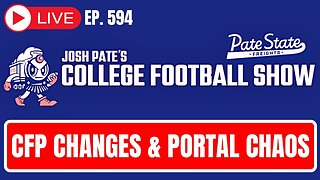 LIVE
LIVE
Josh Pate's College Football Show
3 hours agoCFP Changes Coming | Transfer Portal Intel | Games Of The Year | Head Coaches Set To Elevate
37 watching -
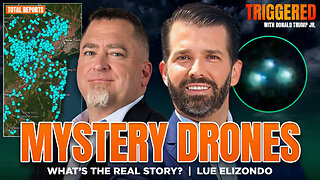 1:21:17
1:21:17
Donald Trump Jr.
5 hours agoWhat are These Mystery Drones? Plus Inside the Swamp’s CR. Interview with Lue Elizondo | TRIGGERED Ep.200
82.6K90 -
 37:54
37:54
Kimberly Guilfoyle
6 hours agoAmerica is Healing, Plus Fani Willis Disqualified, Live with Shemane Nugent & Mike Davis | Ep. 182
62.2K37 -
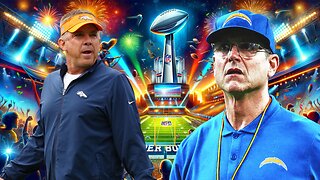 7:38
7:38
Game On!
3 hours ago $0.29 earnedThe picks you need for Thursday Night Football!
4.97K -
 DVR
DVR
LFA TV
23 hours agoBible Prophecy Was Center Stage in 2024 | Trumpet Daily 12.19.24 7PM EST
11K1 -
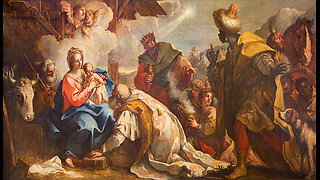 LIVE
LIVE
Quite Frankly
6 hours ago"Divine Providence & The Three Wisemen" ft. Fr. Jason Charron 12/19/24
940 watching -
 1:58:28
1:58:28
Redacted News
5 hours agoBREAKING! Elon Musk DESTROYS spending bill, Ron Paul pushes to make him Speaker | Redacted News
118K260 -
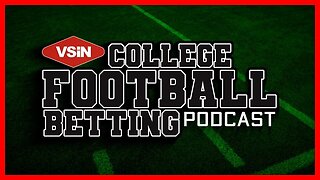 51:06
51:06
VSiNLive
3 hours agoCollege Football Playoff & Bowl Game Best Bets! | VSiN College Football Betting Podcast LIVE
28.1K1 -
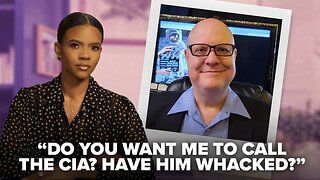 1:34:33
1:34:33
Candace Show Podcast
4 hours agoHow We Faked The Moon Landing With Bart Sibrel | Candace Ep 124
53.5K214 -
 2:08:47
2:08:47
Scammer Payback
4 hours agoCalling Scammers Live
19.9K4